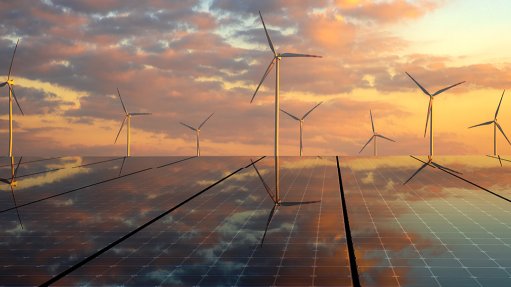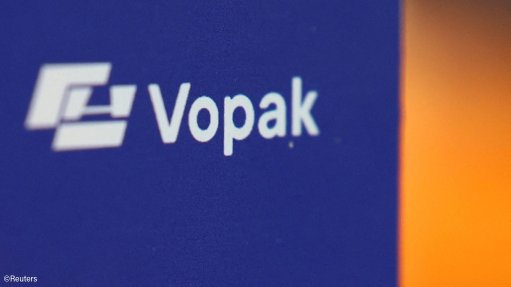Economic recovery from Covid-19 threatened by geopolitical tension surrounding Ukraine
Signs of a slow recovery in manufacturing so far this year – which were in part being driven by improvements in production in Europe and Asia – may now be threatened by escalating geopolitical tension in Europe on the back of the Russia-Ukraine conflict and a simultaneous resurgence of the Covid-19 virus in China, research and consulting firm Frost & Sullivan consulting analyst Nomvo Kasolo said on March 17.
“However, pockets of opportunity exist for markets that can fill the gaps in exports from Russia,” she noted.
Prior to Russia’s invasion of Ukraine, global gross domestic product (GDP) growth forecasts for this year were above 5% – based on a Frost & Sullivan analysis from September last year – while the global manufacturing purchasing manager’s index (PMI) also showed some signs of resilience and recovery across the global economy in the face pf the Omicron variant and looming new Covid-19 waves.
The PMI registered a high of 53.6 in February this year, up from 53.2 in January, Kasolo noted. However, these figures remain lower than pre-pandemic averages, with an overall modest yearly growth rate of just under 2% for global production.
However, since Russia’s military campaign into Ukraine started on February 24, several Western markets have imposed sanctions on exported Russian commodities and key input materials – actions which Kasolo expects to have ripple effects on the global economy.
“Some effects will include a continued shortage of semiconductors and raw materials, staff decline in Ukraine’s employment sector and rising input prices,” she said.
Frost & Sullivan now expects global GDP growth to drop down to 4.3% for this year.
“It is worthwhile tracking the possible implications on the supply chain and growth opportunities this presents for South African industries like the food and automotive sectors,” Kasolo noted.
AUTOMOTIVE/ELECTRICAL MANUFACTURING
The ongoing war in Ukraine has caused logistics bottlenecks in Russia and Ukraine, which, along with US sanctions against Russia, have driven fuel prices higher.
These developments stand to impact manufacturing value chains for both automotive and electrical products but has opportunities for alternative exporting markets, such as South Africa, Kasolo said.
In 2020, South Africa accounted for 33% of global palladium mine production and was the fourth-largest exporter. Therefore, Kasolo believed the country could benefit from the Ukraine crisis by filling this demand-supply gap, through increased exports from the country.
“As the overall prices for palladium currently have not been drastically impacted, revenue generated from filling this gap will be large. South Africa and Zimbabwe would benefit even more if increased focus is placed on more value-add downstream beneficiation opportunities prior to export,” she explained.
Currently, both the UK and the US benefit in terms of export revenue from re-exports of palladium powder from Africa.
FOOD
“The food sector in South Africa will only see impacts from the war through possible price increases rather than shortages,” Kasolo noted.
Nonprofit organisation Grain SA has said these increases will gradually take effect over the next three to six months, which Kasolo believes can be cushioned with collective efforts by the public and private sectors, otherwise they will have “severe” implications for low-income groups.
Russia and Ukraine collectively account for more than one-quarter of global wheat exports and are the leading markets for sunflower oil exports, which are key raw materials for the production of staple food around the globe.
“The current state of things . . . is predicted to result in a reduction in global production, which will impact global wheat prices,” Kasolo warned.
She added that, since wheat prices were controlled by changes in the international market, South Africa’s status as a major importer of wheat was of considerable concern.
“The present crisis echoes once again the need for raising local production by supporting local producers in the coming months. In the past decade, local production suffered at least five significant dips, which were mainly caused by increases in global wheat prices, a weaker rand, increased domestic consumption along with climatic factors such as below-average rainfall,” Kasolo explained.
She said the cushioning of fuel prices by controlling input costs and protecting the exchange rate were ways the impact could be mitigated to some extent.
Kasolo said the situation presented pockets of short-term growth opportunities for South Africa in metal exports – particularly if value-added downstream beneficiation opportunities were explored.
However, the situation also highlights the need to promote the local agricultural production sector to cushion the economy from such changes in future.
“Currently, there is uncertainty on the extent of the impact, but the upcoming months call for collaborative efforts from the government and businesses to protect South Africa’s economy and its inhabitants,” Kasolo concluded.
Article Enquiry
Email Article
Save Article
Feedback
To advertise email advertising@creamermedia.co.za or click here
Press Office
Announcements
What's On
Subscribe to improve your user experience...
Option 1 (equivalent of R125 a month):
Receive a weekly copy of Creamer Media's Engineering News & Mining Weekly magazine
(print copy for those in South Africa and e-magazine for those outside of South Africa)
Receive daily email newsletters
Access to full search results
Access archive of magazine back copies
Access to Projects in Progress
Access to ONE Research Report of your choice in PDF format
Option 2 (equivalent of R375 a month):
All benefits from Option 1
PLUS
Access to Creamer Media's Research Channel Africa for ALL Research Reports, in PDF format, on various industrial and mining sectors
including Electricity; Water; Energy Transition; Hydrogen; Roads, Rail and Ports; Coal; Gold; Platinum; Battery Metals; etc.
Already a subscriber?
Forgotten your password?
Receive weekly copy of Creamer Media's Engineering News & Mining Weekly magazine (print copy for those in South Africa and e-magazine for those outside of South Africa)
➕
Recieve daily email newsletters
➕
Access to full search results
➕
Access archive of magazine back copies
➕
Access to Projects in Progress
➕
Access to ONE Research Report of your choice in PDF format
RESEARCH CHANNEL AFRICA
R4500 (equivalent of R375 a month)
SUBSCRIBEAll benefits from Option 1
➕
Access to Creamer Media's Research Channel Africa for ALL Research Reports on various industrial and mining sectors, in PDF format, including on:
Electricity
➕
Water
➕
Energy Transition
➕
Hydrogen
➕
Roads, Rail and Ports
➕
Coal
➕
Gold
➕
Platinum
➕
Battery Metals
➕
etc.
Receive all benefits from Option 1 or Option 2 delivered to numerous people at your company
➕
Multiple User names and Passwords for simultaneous log-ins
➕
Intranet integration access to all in your organisation

















